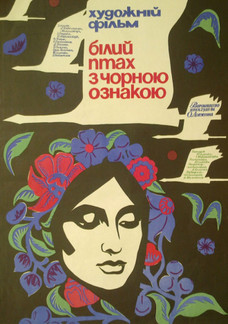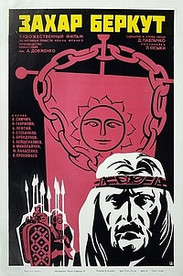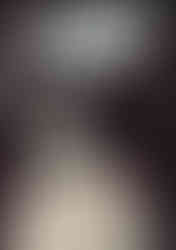Book ''Ukrainian Poetic Cinema''
- Elena Rubashevska

- 22 апр. 2022 г.
- 2 мин. чтения
Обновлено: 8 дек. 2022 г.
German Expressionism, Italian neorealism, and the French New Wave are the well-known milestones of world cinema. However, Ukraine has also left its unique mark on the history of cinematography. In her book, Ukrainian film critic Elena Rubashevska explores Ukrainian Poetic Cinema, a special phenomenon that came to life in the 1960s and gave rise to a whole galaxy of directors who spoke about the philosophical problems of life and death, loyalty and betrayal, society and individuals, in a complex, allegorical, and absolutely unique figurative language that was full of metaphors.
The book examines the main works and personalities of Ukrainian Poetic Cinema and finds out what place they occupy on the map of world cinema, as well as tracks down why and how this unique era became overlooked in history, giving way to the gray routine of Urban Prose.
It also analyzes why poetics became a defining feature of Ukrainian cinema and why it remains the main trait of the national self-consciousness of Ukrainians.
Book on Amazon
Films studied in the book:
1. Oleksandr Dovzhenko
Zvenigora (1928), cinematographer Boris Zavelyov
Arsenal (1929), cinematographer Danylo Demutsky
Earth (1930), cinematographer Danylo Demutsky
2. Serhii Paradzhanov
Shadows of Forgotten Ancestors (1965), cinematographer Yuriy Illenko
3. A well for the thirsty (1965), dir. Yuri Illenko, cinematographers Volodymyr Davydov, Yuri Illenko
4. Eve of Ivan Kupala (1968), directed by Yuriy Illenko, cinematographer Vadim Illenko
5. Stone Cross (1968), dir. Leonid Osyka, cinematographer Valery Kvas
6. Conscience (1968), dir. Volodymyr Denysenko, cinematographer Oleksandr Deryazhny
7. Annychka (1969), dir. Borys Ivchenko, cinematographerMykola Kulchytskyi
8. White bird marked with black (1970), dir. Yuriy Illenko, cinematographer Vilen Kalyuta
9. Zakhar Berkut (1971), dir. Leonid Osyka, cinematographer Valery Kvas
10. Commissars (1971), dir. Mykola Mashchenko, cinematographer Oleg Martynov
11. The Lost Letter (1972), dir. Borys Ivchenko, cinematographer Vitaly Zymovets
12. Babylon XX (1979), dir. Ivan Mykolaichuk, cinematographer Yuri Garmash
13. Tronka (1971), dir. Artur Voytetsky, cinematographer Valery Bashkatov
14. There is a Son Somewhere (1962), dir. Artur Voytetsky, cinematographer Yuriy Illenko
Author film critic Elena Rubashevska







































Комментарии